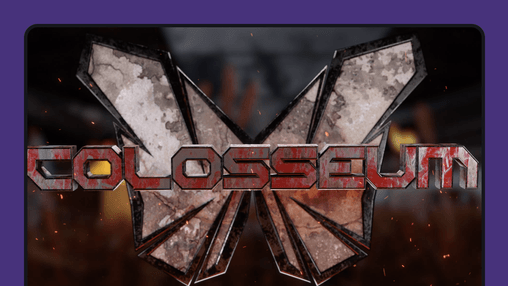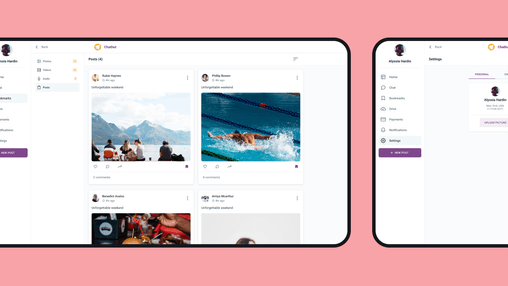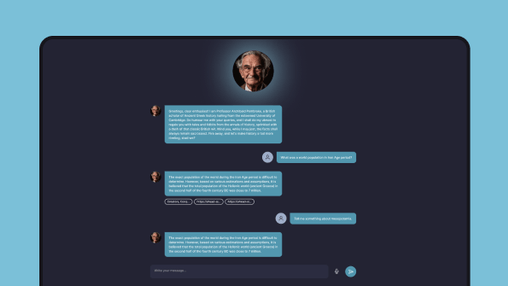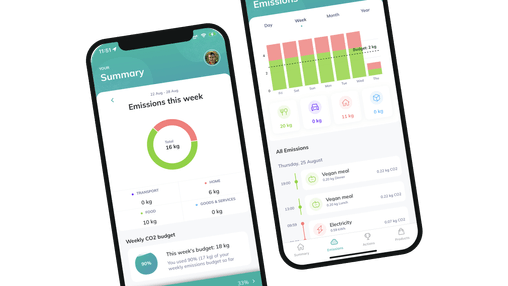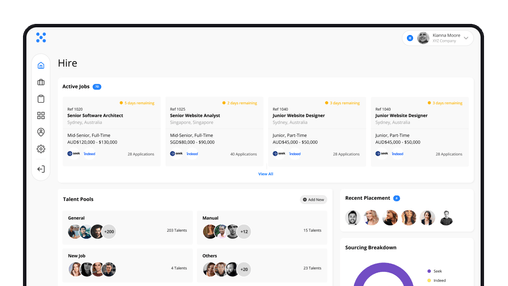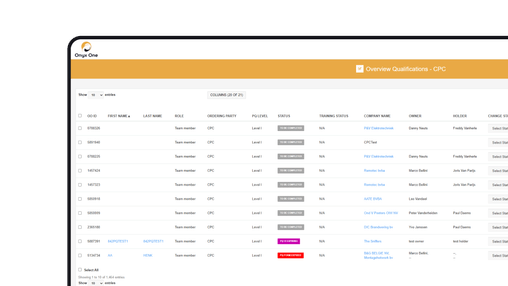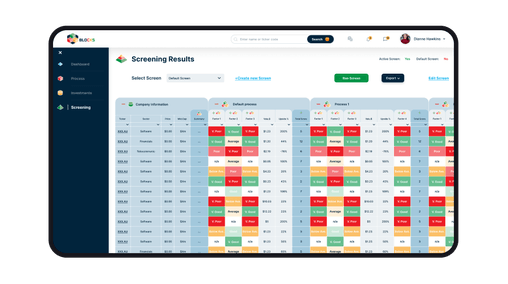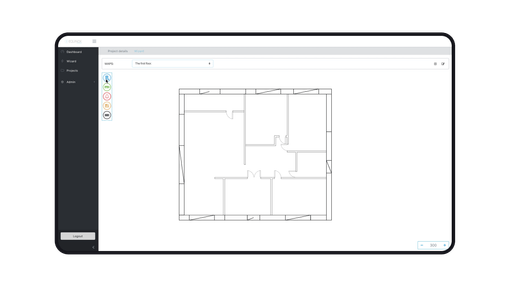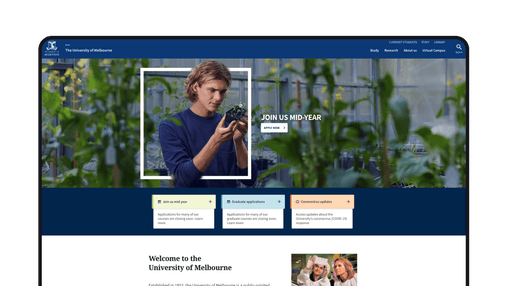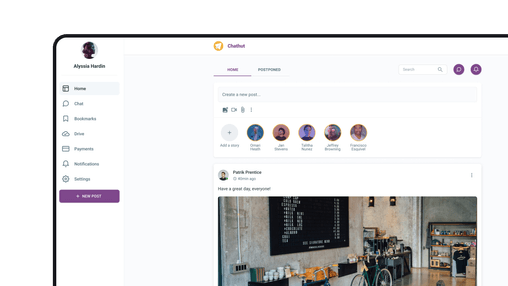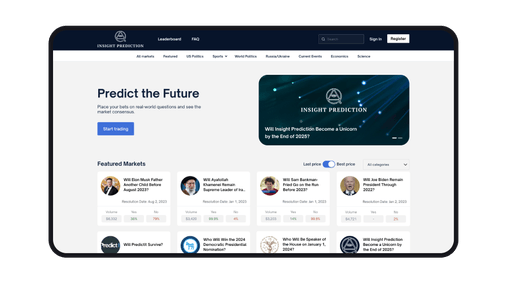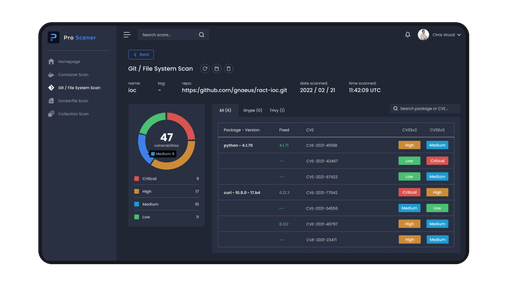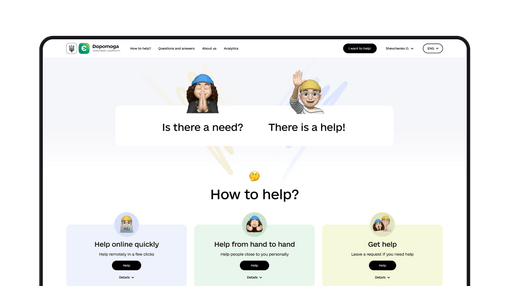- Why should you choose Custom Elearning Product Development?
- Who can squeeze the biggest value out of custom LMS?
- What are the core LMS features?
- How much does it cost to develop a Custom Elearning LMS?
- Rough estimate of basic LMS functionality
- So, how much does It cost to develop a custom LMS in its basic functionality?
- What’s beyond the usual?
- Examples of LMS software estimation
- Uinno experience in LMS development
- Conclusion
Existing LMS solutions vary on a scale of parameters and approaches to learning. Some of them may seem too lightweight, the others are supercharged with a multitude of features, excessive at times.
Technologies continue progressing in the world. Lots of businesses have already realized the gold mining of online learning, especially for their corporate training goals.
Every $1 invested in digital learning for employees turns into an ROI of $30 for a company.
According to the IBM research
Going to some other countries or visiting physically special classrooms to gain more professional knowledge is of no use anymore. Remote learning becomes more and more popular. It saves time and money. It removes barriers including transport connection, language miscommunication, cultural differences, etc. People can connect to the learning material from any place and at any convenient moment.
The only question here is which learning management system (LMS) to use.
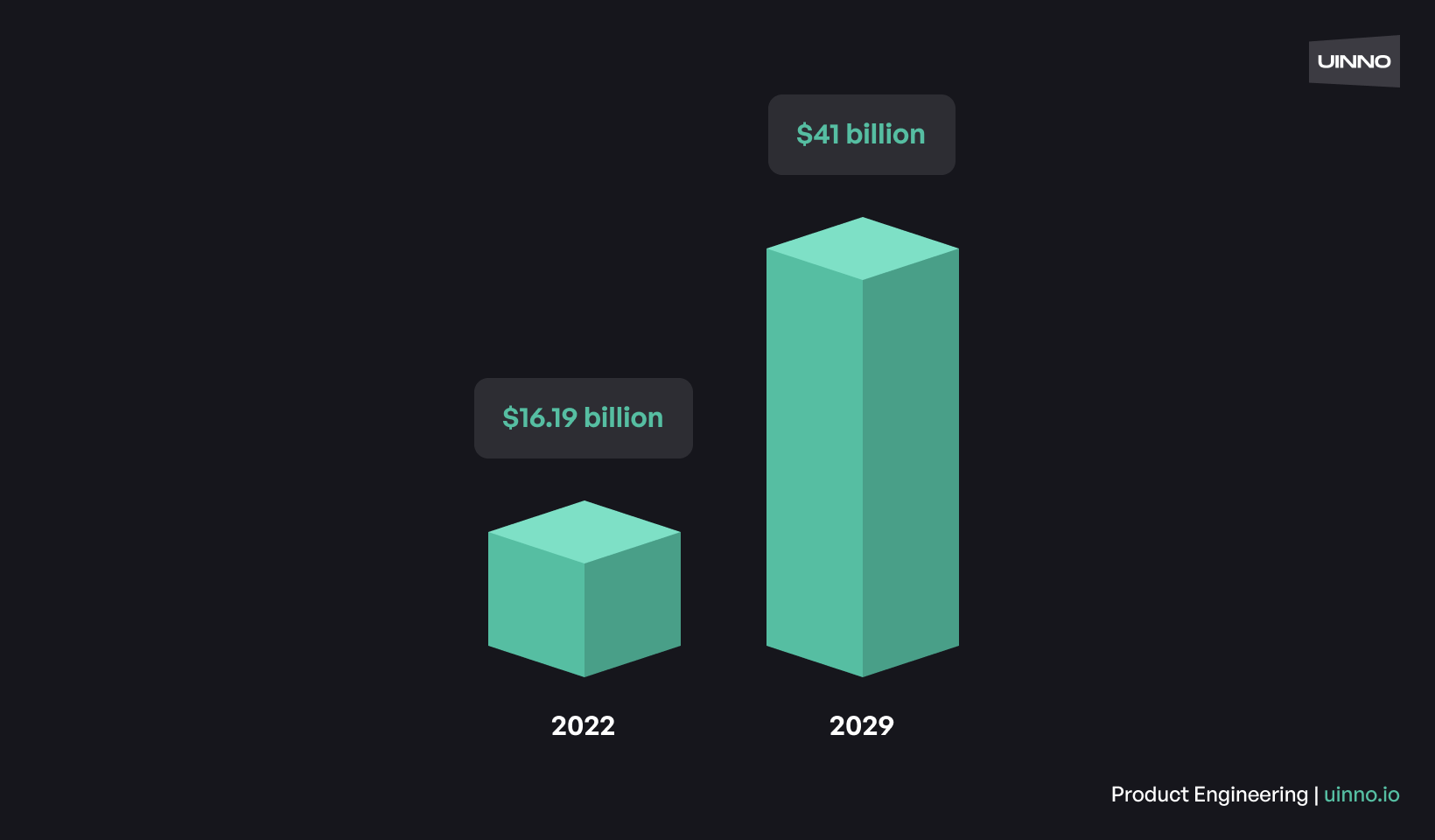
According to a recent study, the learning management system market is predicted to grow from $16.19 billion in 2022 to around $41 billion in 2029, with a compound annual growth rate of 14.2%.
This means that there is a huge demand for quality e-learning software.
What’s the deal?
Existing LMS solutions vary on a scale of parameters and approaches to learning. Some of them may seem too lightweight, the others are supercharged with a multitude of features, excessive at times.
Business owners spent enormous amounts of time and effort to allocate the best-fitting learning management software for their corporate learning needs. Still, they often require to polish the functionality of LMS software to bring it into compliance with their custom training programs.
You either already made research and realize that existing software does not match your own business needs.
Or you do not even want to waste time on research.
Just a clear answer to your inquiry:
What LMS Software to choose for your specific corporate education program?
The answer is a Custom Digital Solution.
The thing is that the more unique your corporate training program is, the more custom features you need to cover all your needs.
It’s the same with other educational programs that create a SaaS for sale and, thus, follow a global trend:
You want to create a unique value proposition to stand out on the market.
That’s why a custom eLearning solution is the best for this major purpose without a doubt.
What’s the alternative?
However, not every company has such ambitious plans.
In general, there are three preliminary approaches to deciding on the best solution for corporate training implementation or any other educational program delivery:
Use a ready-made LMS where you can choose an existing LMS provider and pay for a selected subscription plan with limited options.
Customize an existing LMS where you will need to partly pay for a selected amount of features within a certain LMS product and additionally hire software developers to implement the extra functionality.
Create a custom LMS product that will strictly serve your business goals and requires to be developed by a team of professional engineers.
A comparison between the three business approaches
| Ready-made LMS | Customized LMS | Custom LMS | |
|---|---|---|---|
| Features set | Pre-defined pack of features that usually becomes available upon payment of a subscription fee and is non-changeable. | Beyond the existing features pack, allows a client to integrate a limited range of additional functionality. | A particular set of features created from the ground - nothing more nor less than your business needs. |
| Compliance with business goals | Can serve only common business goals noticed across different industries. | Serves industry-specific goals with limitations on existing tech integrations. | Fully compliant with your unique business goals due to custom-made functionality. |
| Effectiveness | Results may be hard to predict when applied to various business domains. | There is a chance to reach the needed results due to customized integrations. | The maximum probability to receive the expected results. |
| Scalability | Along with business growth, there is a need to pay for an expanded feature set which may still not cover all the needs. | This will require the team to find a way to implement more integrations attached to the pre-chosen tech stack. | With the right solution architecture, the LMS product scalability is unlimited. |
| Price | It may be free or cheap at first, but with the potential to grow exponentially. | Includes a continuous fee for a subscription and one-time additional feature integrations. | Requires an investment for the LMS development at first without further standing payments. |
| Support | No need to worry about LMS updates. | Requires minimum update for integrations. | You are responsible for maintaining the product up-to-date. |
| When to choose | A great option for businesses with a small budget and minimum requirements. | When a company is limited by a budget but needs solutions that no LMS provider satisfies. | You need a smart approach toward the implementation of your one-of-a-kind training program. |
Now you can choose the best option depending on your business needs and capacity.
Why should you choose Custom Elearning Product Development?
Probably, the most intriguing path is to choose the last but not the least variant - custom eLearning product development. As the benefits are most noticeable for businesses that want to stand out in the market.
Here’s why!
Your Business Model
At times companies make efforts to change their business around technology. When actually, it should be the other way around. Technologies should serve your perfectly-polished business model and enhance it to open a new horizon for your business growth. This is when a professional overview of your business requirements, thorough business analysis, and the right discovery phase adds value and allows the creation of the best-fitting LMS software.
Specific to Your Needs
A custom LMS allows for matching all your objectives, customizing learning modules, easily changing functionality upon user requirements, and implementing only the necessary functions.
Security
All functionality is native when it comes to custom development. It means that all communication between different functionality parts is thought through and fully protected from any external vulnerabilities. Besides, quality assurance is a usual step of a custom software development process.
Stability
When the whole product development process is conducted by a unified development team, with a thought-out professional approach, you don’t have to worry about possible lags.
Compared to a customized approach, different integrations may produce points of concern due to not so smooth interlinking of various components.
Scalability
With the right solution design and architecture that is chosen at the beginning of the custom product development, your LMS product scalability, and business growth is unlimited.
Who can squeeze the biggest value out of custom LMS?
Any business can benefit from custom approaches. But mostly, you can prefer this business approach, if you:
- Provide custom training programs within your huge audience (Influencers, business trainers, celebrities);
- Make big training programs for large audiences (universities, educational organizations);
- Treat corporate education within your enterprise (SMBs and large organizations).
What are the core LMS features?
There is always a set of basic functionality that goes into every LMS like login page, user management, etc. However, the biggest value and the reason for a huge variety of different LMS types existing on the market provide custom features and unique dashboards. They differ from one eLearning solution to another, provide a unique value proposition for any product and allow each company to be differentiated from competitors.
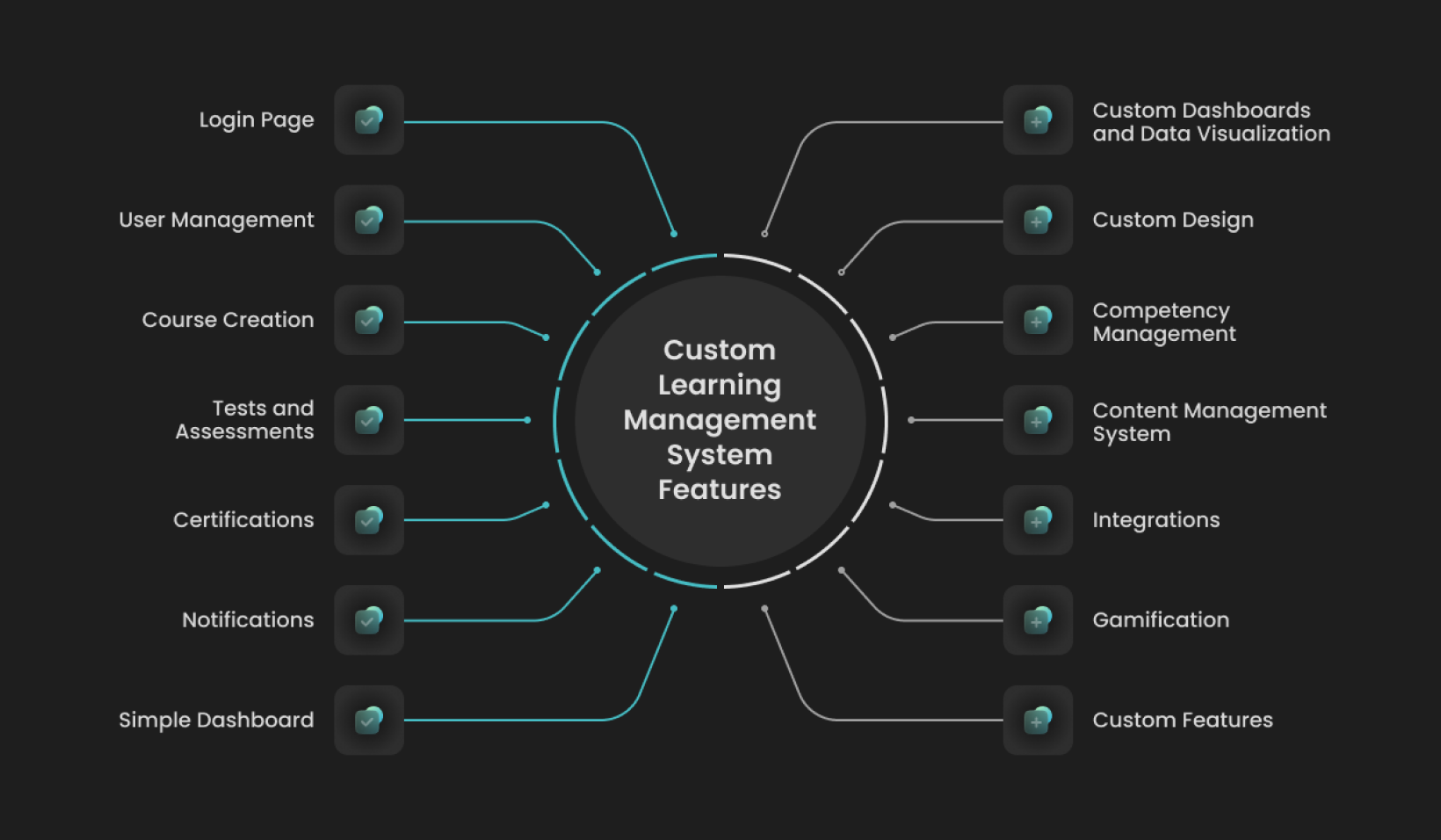
How much does it cost to develop a Custom Elearning LMS?
As is usual, any custom solution is heavily dependent on the number of features to be implemented, the development team’s expertise, and, concurrently, hourly rates, the complexity of the chosen technology stack, etc.
Of course, we can try to describe the costs of LMS development in detail using data tables, schemes, and various calculations. As a result, we can draw out some visionary LMS in a vacuum where costs will dramatically differ from the real project.
But we do not want to mislead you.
Rough estimate of basic LMS functionality
Indeed, any LMS has a set of common features that is being repeated from one LMS to another and, thus, can be pre-estimated depending on the experience of a specific eLearning product development. Of course, certain requirements differ, but on average we will have approximately the same picture:
- Signup/Login - 40 hrs;
- Profile - 40 hrs;
- User management - 60 hrs;
- Notifications - 20 hrs;
- Search - 40 hrs;
- Payments - 40 hrs;
This is a rough estimate for the backend development of some basic functionality.
We will receive nearly the same order of numbers for the frontend development and for mobile native development (when the development is performed for only one mobile operating system like iOS or Android).
If we take into account mobile cross-platform development (using Flutter or React Native technologies), then we should multiply this estimate by approximately 1.2-1.3 in order to cover the differences between iOS and Android.
So, how much does It cost to develop a custom LMS in its basic functionality?
The hourly rates of software developers differ based on their location, experience, and the technologies they use. So the range is pretty amusing. Worldwide some engineers bill $25 per hour, the others prefer getting $150 per hour. Of course, the rates can be less or more than we’ve specified, for instance, Indian developers can charge just $10 per hour while US development agencies can evaluate an hour of their software development services at more than $250 per hour.
Why such a difference? Quality takes into account. So it’s always better to select software development vendors that provide a great mix of quality and price tag. They say, Eastern Europe is the most popular choice in such a case. A special leader is Ukraine where software developers have a strong background in engineering education, close mentality to developed countries, comfortable time zone, high level of English proficiency and pretty attractive app development costs estimates. Anyway, it’s you who decides on the vendor.
To count the total cost of basic LMS development functionality, it is better to take into account both minimum and maximum average hourly rates.This way, the specified above app development time can be multiplied to the average rates of $25 to $150 which gives us the following:
- The cost of backend development - from $6,000 to $36,000;
- Frontend development cost - from $6,000 to $36,000;
- Native mobile development price - from $6,000 to $36,000;
- Cross-platform development cost - from $7,200 to $46,800.
So in total the whole LMS development cost may take from $19,200 to $118,800. That’s just the specified basic functionality.
What’s beyond the usual?
App business logic is your value proposition to the market.
The most important part of each product is the business logic, which is very different from project to project. It is often absolutely unique. Therefore, to evaluate it without the requirements itself is more fortune-telling on tarot cards than business.
Let’s simply match your product requirements with our product engineering expertise!
Examples of LMS software estimation
To get some perspective of how much different types of eLearning software development costs, let’s look at a few examples of LMS applications with different business logic.
1. Duolingo
It took around 1.5 - 2 years to develop the Duolingo language learning app as it is now. It became one of the most popular apps for learning various languages. However, we can only guess the expenses for marketing, app testing, and further app maintenance. But we believe that this is a relevant estimate for a project of this kind.
Bear in mind that gamification became one of the strongest points in Duolingo which made people stick to it. The overall learning process is easily organized in a form of an engaging adventure. It all and many other things are what the market identifies as a value proposition.
2. Custom LMS With Educational Tutorials
Many influencers in different business niches start creating and selling packs of tutorial videos and various materials. Custom LMS allows them to provide a better user experience and unite all of it under one convenient digital app. The development of such an Edutech solution will take around 3-4 months.
This kind of LMS is lightweight and always contains some zest in a form of a specific function or content presentation which makes influencers’ fans happy.
3. Corporate Training LMS
A corporate LMS of an enterprise level includes different training programs that are specifically built to engage staff in their professional progress. The overall corporate LMS development will take approximately 2 years.
This estimate includes the parallel work of frontend and backend developers, and the project manager (1-3 hours per day). Additionally, we strongly advise performing quality assurance (3-4 hours per day).
Uinno experience in LMS development
Our engineers have strong expertise in custom LMS development. Just to mention, a product that is used by respectable companies like Bosch, Pringles, Electrolux, and others for their corporate education needs.
We have introduced high-standard code review practices, re-evaluated the whole solution architecture, and nurtured the client’s development team to raise their professional knowledge while maintaining the product development. You can get to know more details in our dedicated LMS case study.
Conclusion
Depending on your business needs, objectives, and capacity, you can choose any of the possible business approaches.
However, when you are ambitious enough and have the desire to make a wise investment into a unique LMS solution, a custom development approach is what fits your interests best.
Success cases
Uinno is a product development agency compiled of engineers and technology experts with an ownership mindset who are solely focused on solving business challenges via creating future-ready apps, websites, and digital solutions.
United Kingdom
Kingston upon Thames, 145 London Road
Estonia
Tallinn, Tornimae 5
Ukraine
Lviv, Hazova St. 7, Seven-G
Ukraine
Zaporizhzhia, Sobornyi 160
USA
447 Broadway 2nd floor
New York, NY 10013
USA
78 SW 7th St,
Miami, FL 33130
+380 (99) 455 99 91
contact@uinno.io
hr@uinno.io


